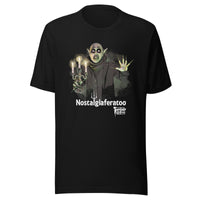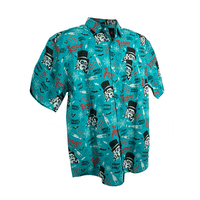Nobody in the world knew how ''The Fugitive'' would end
The writers didn't even know whether the one-armed-man would be brought to justice.
The Fugitive is one of the greatest crime dramas of all time. Throughout four seasons, the wrongly accused Dr. Richard Kimble evaded the law, a man on the lam after the murder of his wife. Even though he didn't do it, he gets arrested anyway as the primary suspect in the homicide case. But destiny intervenes, and while he's being transported to death row, Kimble's train derails, and he's able to escape into the night. As he eludes capture, Dr. Kimble also pursues the mysterious "one-armed man," the real killer.
You'd think a story like this would have a clear beginning, middle and end. But, according to those involved with the show, that wasn't necessarily the case.
In a 1965 interview with the Sunday Mirror's Matt White, TV's Dr. Kimble (real name: David Janssen) couldn't spill the beans, even if he wanted to. It turns out the actor wasn't aware of his character's fate. Janssen had no clue how the saga would unfold.
"Not even the writers know if Dr. Kimble will ever catch the one-armed man he believes murdered his wife," said Janssen. The interview occurred in July of '65, during the summer before the third season's premier. So with two years of a story already told, this is the midway point of the series. "Maybe [Kimble] will be exonerated of the murder conviction. Maybe the one-armed man will be caught. Maybe we will never ever know."
It's an issue that has plagued many shows since. If the mystery is the engine, and the intrigue is what drives the series forward, a resolution spells the show's end. Take, for example, Twin Peaks. The show is built around a central quandary: "Who killed Laura Palmer?" As soon as the audience knows the answer, the show is pretty much doomed.
Janssen, nonetheless, was able to draw motivation from the story, even without knowing its ending. "To me, as an actor, the concept of the show is not so much a chase but that of a man's survival." To him, the conclusion was (at least at that juncture) irrelevant. Janssen was able to perform believably because his character didn't know what would happen either.
"I don't think it's important whether he finds the one-armed man or not," said Janssen. "What is important is how he exists."








34 Comments

Then they write: "Maybe the Kimble will be exonerated of the murder conviction..." "The Kimble"... as opposed to the "Non-Kimble"???
I haven't recently looked up the viewing records of Mini-Series in the early days. But didn't Roots also break some kind of record? For the novelty and historical perspective. It was a very powerful entry then. But, again, it ran for two-hours.
So the only point to be made is, considering what was the format of the collective viewing timeframe. And how was the product, defined. Actually, what was augmented Dallas' most notorious episode, was the promotional value of conversation peaking everyone's anticipation and curiosity. They'd send key actors to Talk Shows, ramping it up, without divulging the secret. But it was billed as a pure murder mystery. Probably not unlike Daytime Soap Operas either.
In reference to what's below:
But we've had 𝒕𝒉𝒂𝒕 discussion here before, too. Those records need to be parsed out. If not by decade, then format. MASH was intended to be an hours-worth. Except that in the day, programing didn't easily given up an hour of their regular programing during prime-time. It has become an hour long feature, to celebrate occasions and with interviews. Like they've extended Cheers as well.
I haven't recently looked up the viewing record of Mini-Series in the early days. But didn't Roots also break some kind of record.
So the only point to be made is, what was the format of the viewing collective. And how was the product, defined. Actually, what was attributed to Dallas' most notorious episode, was the promotional value of conversation peaking everyone's anticipation. It was billed as a pure murder mystery!














































.jpg)
